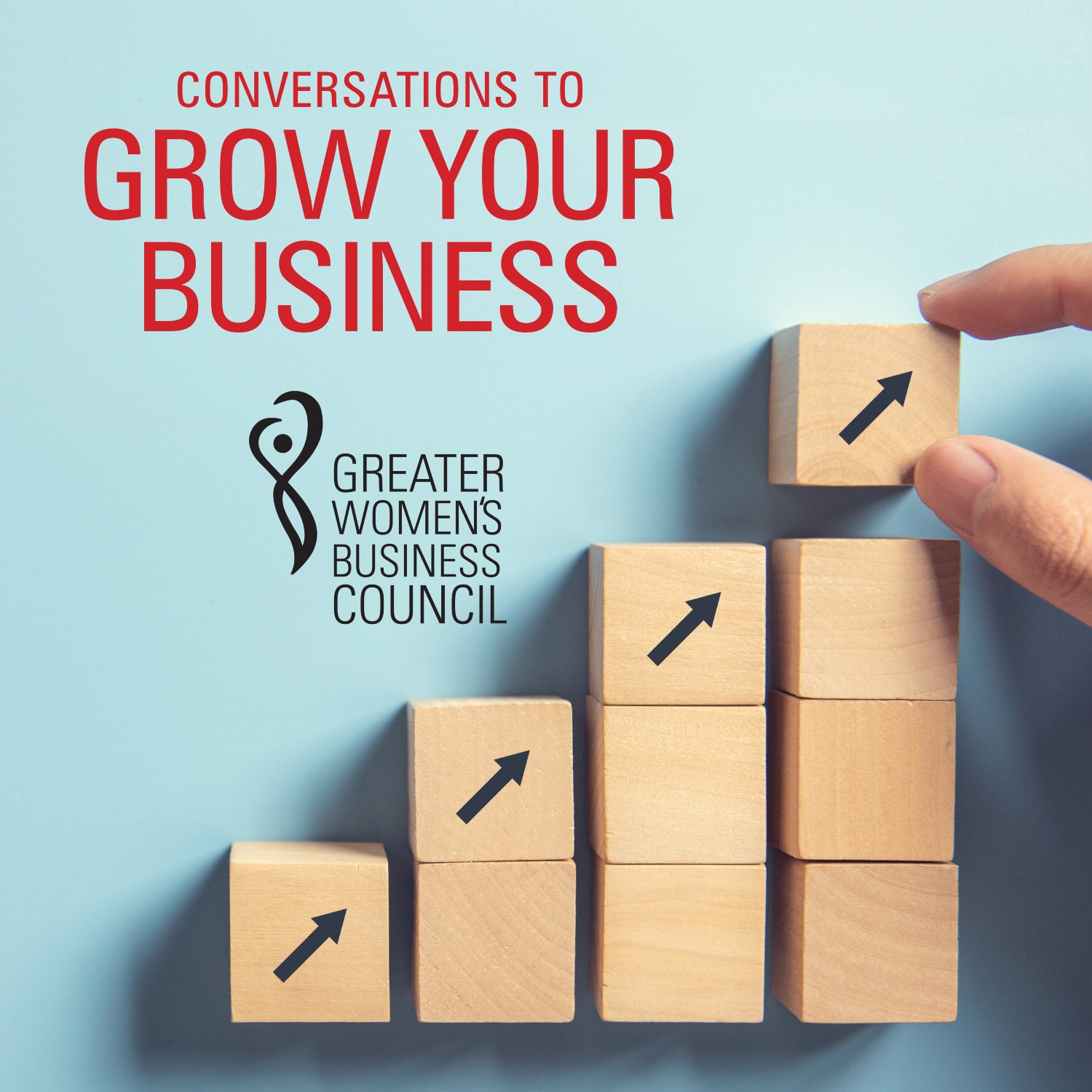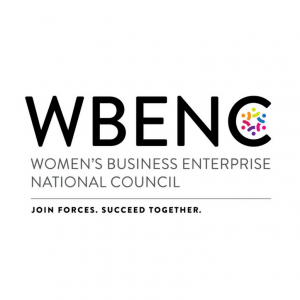
 Jennifer Barbosa, International Supply Partners
Jennifer Barbosa, International Supply Partners
TRANSCRIPT
Intro: [00:00:04] Broadcasting live from the Business RadioX studios in Atlanta, Georgia, it’s time for GWBC Radio’s Open for Business. Now, here’s your host.
Lee Kantor: [00:00:18] Lee Kantor here, broadcasting live from WBENC’s National Conference 2022 inside the booth of GWBC, booth 1812, if you want to come by and see us. Right now, we have Jennifer Barbosa and she is with International Supply Partners. Welcome, Jennifer.
Jennifer Barbosa: [00:00:35] Thank you.
Lee Kantor: [00:00:36] So, how’s the conference been for you so far?
Jennifer Barbosa: [00:00:38] It has been amazing. We’ve made some awesome connections. So, opened up some new opportunities, solidified some great relationships. It’s more than I had anticipated.
Lee Kantor: [00:00:50] It’s overwhelming, isn’t it? You walk in and it just-
Jennifer Barbosa: [00:00:52] Oh, my goodness. All of it, it’s way more than I expected, but I love that the way they have the system, the schedule on the app, it helps you to navigate.
Lee Kantor: [00:01:07] Right. Because you could get—if you just came in here and thought you were just going to wing this, good luck.
Jennifer Barbosa: [00:01:12] No, no. I would not recommend that.
Lee Kantor: [00:01:14] I would not recommend that.
Jennifer Barbosa: [00:01:15] Have a plan of action.
Lee Kantor: [00:01:17] Exactly. Now, talk about International Supply Partners. How are you serving folks?
Jennifer Barbosa: [00:01:22] Sure. So, International Supply Partners was founded in 2016 here in Atlanta. We are a full supply company where we leverage our relationships with manufacturers, international as well as domestic, supplying office, medical, janitorial, industrial supplies and equipments. We are really good at very innovative products new to the market and we are really good at sourcing products that are in high demand but maybe in low inventory. So, we can call up our manufacturer partners who produce those products, and say, hey, can you do me a favor?
Lee Kantor: [00:02:03] So, relationships are important, right?
Jennifer Barbosa: [00:02:04] Absolutely. Yes. And that’s-
Lee Kantor: [00:02:06] And you have a lot of relationships in a lot of important areas.
Jennifer Barbosa: [00:02:09] Hence, the name Partners.
Lee Kantor: [00:02:10] Exactly. So, now, how did you get into this line of work?
Jennifer Barbosa: [00:02:14] Well, the funny story is I was a stay-at-home mom, former military spouse, and I had six kids at home, a new baby, and I was bored.
Lee Kantor: [00:02:25] Bored. So, let me just start this brand new business. It’s connecting lots of people all over the globe.
Jennifer Barbosa: [00:02:30] Yes. I was just like, I want to supply, and my goal originally was to supply to the federal government. And it slowly started to expand, and now, we supply—we just finalized our partnership agreement with Overstock Government and the GSA marketplace. So, we will be supplying PPE to GSA, which both federal agencies and state governments will have access to. We also have served hospitals. We have hospital health centers that we serve on a regular basis. We have served state counties and local city governments, as well as nonprofit organizations. And we are steadily working on our relationships with corporate and Fortune 500 companies, which we are actively building up on those as well. So, we have a partnership, a master agreement with AT&T. We are working to leverage our relationships with CVS and some of the other major corporations so that we can be of service to them as well.
Lee Kantor: [00:03:39] So, how has the GWBC helped you?
Jennifer Barbosa: [00:03:43] Well, aside from the amazing network that I’ve made, the relationships with other women owners, the cohorts, the programs, the webinars, I’ve received a lot of valuable information, some valuable skill sets, and just opened up my eyes to what I didn’t know.
Lee Kantor: [00:04:08] And what’s possible.
Jennifer Barbosa: [00:04:10] And what is possible. Absolutely. Absolutely.
Lee Kantor: [00:04:12] Now, any advice for that stay-at-home mom out there that maybe has that itch, that entrepreneurial itch to take that leap, and to kind of trust your gut and to go boldly forward?
Jennifer Barbosa: [00:04:24] Well, I’ll tell you this, if you have—if you are a stay-at-home mom, you have a lot of management skills, organization skills.
Lee Kantor: [00:04:34] Don’t discount that.
Jennifer Barbosa: [00:04:34] Do not discount that, because it comes into great value and purpose when you’re running your business. And I always say if you feel that in your gut and your heart, and it keeps bothering you, then it means that you need to go ahead and do it. And you don’t need to necessarily have all of the tools or all of the plan in action, just start. You’ve just got to start somewhere.
Lee Kantor: [00:04:59] Uh-huh. And is that what you did? You started maybe small, and then were able to-
Jennifer Barbosa: [00:05:02] Yeah, I started—I registered the business with the state. I started—I went ahead and immediately registered and got my company certified as a minority-owned business.
Lee Kantor: [00:05:12] So, you knew that that was important?
Jennifer Barbosa: [00:05:13] Oh, absolutely, especially when you’re serving the governments. But right now, the trend also is a lot of major corporations, they’re really big in supplier diversity and inclusion. So, having these certifications is essential.
Lee Kantor: [00:05:29] It’s not a nice to have, right?
Jennifer Barbosa: [00:05:30] It’s not a nice to have. No, it’s an essential. It’s absolutely must have. So, I went ahead and started that process immediately. And I’m glad that I did, because it really set us apart very quickly.
Lee Kantor: [00:05:41] And then, it helped probably take you to a new level faster than if you had not done that.
Jennifer Barbosa: [00:05:46] Absolutely. Absolutely. I mean, conversations were a lot easier to have. You were able to get the decision maker’s attention a lot faster, because like I said, DE&I are big topics and it’s really important to a lot of organizations. And then, the federal government has mandated opportunities for women-owned, minority-owned businesses, and you have to take advantage of that.
Lee Kantor: [00:06:13] It’s like a fast pass.
Jennifer Barbosa: [00:06:14] It is. It is.
Lee Kantor: [00:06:16] And it’s true. It’s one of those things where if you’re a woman-owned business or minority-owned business, you should really consider investing the time, because it’s not easy to get the certificate. It’s not like something you just check a box, and they go, here’s your certification, you have to do some work, but it’s work-
Jennifer Barbosa: [00:06:31] You got to do the work, and it’s not hard work, i’s tedious work. It’s paperwork and it’s a lot of back and forth, and some certifications take a lot longer than others, but it is well worth the time and investment for it. Absolutely. And there are free certifications and there are membership organizations that you can get certified through, which I highly recommend as well, like WBENC, like the Greater Women’s Business Council. There are so many out there.
Lee Kantor: [00:07:01] Right. And it’s worth—even if you just meet a person that’s a member of them, just ask them questions. It’s such a collaborative community. Everybody’s trying to help everybody. It’s not this cutthroat, dog eat dog situation.
Jennifer Barbosa: [00:07:12] Not at all. Not at all.
Lee Kantor: [00:07:14] People are rooting for each other and they want everybody to succeed.
Jennifer Barbosa: [00:07:17] And then, also, one great thing to consider is a lot of the decisionmakers in these major corporations sit on the board or are part of some committees of these organizations that do the certifications. So, the level of networking and connections you’re going to have are invaluable.
Lee Kantor: [00:07:38] Right. And it’s efficient, because like you said, these people are on the board. You can meet a lot of people quickly. And these people are the right people in the right organizations.
Jennifer Barbosa: [00:07:46] Exactly.
Lee Kantor: [00:07:47] So, if somebody wants to learn more, what is the website for your organization?
Jennifer Barbosa: [00:07:51] Well, you can visit us through internationalsupplypartners.com or you can also go to queensupplier.com. That’s what they call me.
Lee Kantor: [00:08:00] That’s what they call you.
Jennifer Barbosa: [00:08:01] The Queen Supplier. And reach out to us. We love to partner up with other businesses that do the similar thing, or if we can support you and make sure that you look good to your clients, that’s what we’re going for. We’re here to be a partner on every aspect.
Lee Kantor: [00:08:18] Well, Jennifer, thank you so much for sharing your story. You’re doing important work and we appreciate you.
Jennifer Barbosa: [00:08:22] Thank you. I appreciate the opportunity.
Lee Kantor: [00:08:24] Alright. This is Lee Kantor, broadcasting live from WBENC National Conference 2022 inside the GWBC booth. We’ll be back in a few.
About WBENC
The Women’s Business Enterprise National Council (WBENC) is a leading non-profit organization dedicated to helping women-owned businesses thrive.
We believe diversity promotes innovation, opens doors, and creates partnerships that fuel the economy. That’s why we not only provide the most relied upon certification standard for women-owned businesses, but we also offer the tools to help them succeed.
About GWBC
The Greater Women’s Business Council (GWBC®) is at the forefront of redefining women business enterprises (WBEs). An increasing focus on supplier diversity means major corporations are viewing our WBEs as innovative, flexible and competitive solutions. The number of women-owned businesses is rising to reflect an increasingly diverse consumer base of women making a majority of buying decision for herself, her family and her business. 
GWBC® has partnered with dozens of major companies who are committed to providing a sustainable foundation through our guiding principles to bring education, training and the standardization of national certification to women businesses in Georgia, North Carolina and South Carolina.














